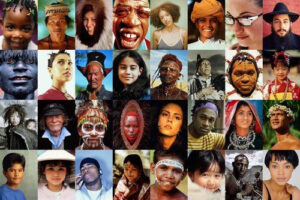Note: for the purposes of this article, the term ‘Indigenous’ is used to refer to all First Nations peoples of the world collectively, however it should be noted that all these individual groups have distinct and unique identities which need to be recognised.
I’ve been fortunate in my life thus far to have been able to meet with and share knowledge and experience with several groups of Indigenous peoples, including my own Aboriginal peoples, Torres Strait Islanders, Māori, and Native peoples of America. In that time I’ve learned that our similarities – in our cultures, our histories, and the challenges we face today – far exceed our differences. These similarities appear across a range of issues, for example: health, education, social justice, and socioeconomic status, and within many of the determinants for these issues: racism, disempowerment, assimilation and genocide policies of the past, and so forth. What’s more is I’ve been able to observe the way that different groups address these issues – particularly in my area of expertise, healthcare – is often based on similar principles and result in similar approaches. One immediate example that comes to mind is addressing healthcare needs of Indigenous populations through Indigenous-controlled health centres, which provide relevant healthcare services in a culturally safe environment.
Unfortunately another similarity which many Indigenous populations share is that despite our best efforts little progress has been made to improve the situation of our peoples. There are many reasons for this, yet again, when you start looking at these in broad terms – systemic racism, lack of self-determination, lack of funding, etc. – you see that the problems are pretty much the same across different groups.
This leads me to ask the question: if we all have similar backgrounds and beliefs, face the same challenges and obstacles, and have the same goals for our peoples, wouldn’t it be in our best interests to work together for the betterment of all?
Strength in Numbers
Another sad fact for Indigenous peoples is that we are often the minority in our own countries, and the system that we have to live and work in is set up to accomodate and serve the majority (or if you prefer, the “ruling majority”). Add to that the fact that within Indigenous populations there is often further division by clan/tribe/family/other constructs, and the numbers start to get very small. Speaking from my experience within Aboriginal health, we know that unity brings strength, and that strength can be used to affect change. It’s not just about about more voices. Strength from unity can look like:
- an increased and diverse knowledge base, which extends the capability for problem solving;
- a more comprehensive support structure, through identifying and relating to others who can understand and empathise not just through shared experience but shared beliefs;
- more opportunities to identify and/or develop best practice/gold standard models through the sharing of ideas that have demonstrated success; and
- an enhanced capacity for advocacy to affect change across a broader audience.
I’ve seen this work firsthand, both within/amongst Aboriginal peoples, and in collaborative efforts between Aboriginal and Māori peoples. For example, I had the privilege of being able to share a mentoring program for Aboriginal and Torres Strait Islander physiotherapy students with some Māori colleagues, who in return were able to share some of their best practice examples of delivering tertiary education in the health sciences to Māori students. The experience not only shared knowledge that was useful to both groups, but the sense of comraderie and the realisation that we face so many of the same issues and challenges, and hold many of the same beliefs, formed connections that still have benefits today.
What if we could do this on a global level?
A Vision of Global Indigenous Collaboration
I believe that Indigenous peoples working together for the betterment of all has the potential to achieve far more in a far shorter time frame than what we’ve been able to achieve individually to date. Imagine a global network of Indigenous linguists examining ways of preserving and promoting Indigenous languages. Or a global network of Indigenous healthcare providers identifying, endorsing and promoting best practice models of service delivery for Indigenous peoples. Imagine global Indigenous think tanks devoted to resolving issues such as racism and social inequity, who use the global stage to advocate for change, to influence those in power on local, regional, and global scales.
What could we achieve then?
I’m always looking to connect with people who share my vision, or who just have an interest in Indigenous issues, especially Indigenous health, so if interested please feel free to contact me.


